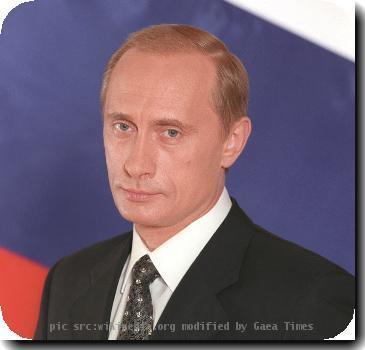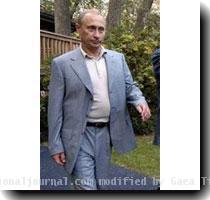Officials say NATO wants Russia to donate weapons to Afghanistan army
By Slobodan Lekic, APFriday, December 11, 2009
NATO officials: Russian should give Afghan arms
BRUSSELS — NATO plans to ask Russia to contribute more to the escalating Afghan war by donating AK-47 assault rifles, grenade launchers, artillery, armored vehicles and other weapons to the expanding Afghan army, officials said Friday.
New NATO chief Anders Fogh Rasmussen starts his first visit to Moscow on Tuesday and will focus on Afghanistan in meetings with President Dmitry Medvedev and Prime Minister Vladimir Putin, the alliance said.
Two NATO diplomats said they do not expect Fogh Rasmussen to discuss specific requests but there are plans to ask Russia in coming months for donations of weapons systems and others items such as fuel for the Afghan security forces. The diplomats spoke on condition of anonymity because they are barred from publicly discussing sensitive matters.
Russia fought a disastrous 10-year war in Afghanistan before withdrawing in 1989. It has sold small arms and other weapons systems to the internationally backed Afghan government for several years and provided $220 million worth of military aid including aviation equipment, an air-defense system for Kabul airport, communications gear, vehicles, repair equipment and spare parts, NATO and Russian officials said.
Last month, Moscow sold four Mi-17 medium-lift transport helicopters to the Afghan air force — the first new planes delivered to Afghanistan in two decades.
The Russians have complained that some of their small-arms have ended up in rebel hands. Russian officials in Moscow and Brussels had no immediate comment on the prospects of future military assistance to Afghanistan.
The diplomats said the Afghan army — which is already overwhelmingly equipped with Russian arms — would need more machine guns and rocket-propelled grenade launchers, and especially tens of thousands of Kalashnikov AK-47 assault rifles, along with field artillery guns and armored vehicles.
The AK-47 remains the preferred automatic weapon of both Taliban insurgents and the security forces because of its power.
NATO is also seeking up to a half-dozen refurbished Antonov An-32 light tactical transports to join the four currently in Afghan service, one of the diplomats said. The planes are designed to perform well in the hot and high-altitude conditions prevalent in much of Afghanistan.
Relations between NATO and Moscow have improved significantly since they were frozen for six months in the aftermath of last year’s Russia-Georgia war.
Moscow has repeatedly expressed its willingness to help the war effort in Afghanistan, due to fears that any return to power by Taliban extremists would destabilize Central Asia and endanger Russia’s own security.
Russia has allowed NATO nations to use its territory for the overland transport of supplies to Afghanistan. NATO commanders have been pushing for shipment of supplies to the growing international force in Afghanistan via this route because the normal supply route to the landlocked nation through Pakistan has come under repeated Taliban attacks.
The Russians also have trained thousands of Afghan anti-narcotics police officers at a training center near Moscow.
Kremlin officials had suggested further cooperation was likely, but have ruled out sending any troops. They also have complained that NATO has not been keeping them informed about its plans for the war, saying improved cooperation was essential for the success of the mission.
The new Afghan army numbers nearly 100,000 men but is scheduled to expand to 134,000 by next October, with another 100,000 troops to be added over the next three years.
The United States and its NATO allies have more than 100,000 soldiers in Afghanistan — about 71,000 of them Americans — where they are struggling to regain the initiative from the resurgent guerrillas. They will be joined next year by 30,000 American and 7,000 European reinforcements.
Associated Press Writer Vladimir Isachenkov in Moscow contributed to this report.
Tags: Afghanistan, Asia, Brussels, Central Asia, Eastern Europe, Europe, Moscow, Russia, Vladimir Putin

